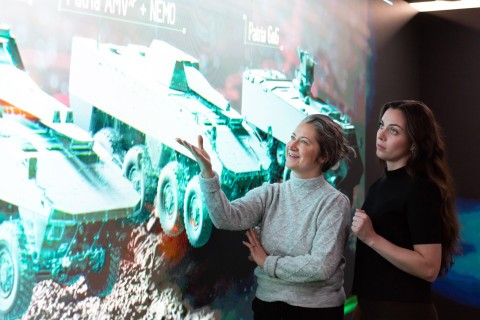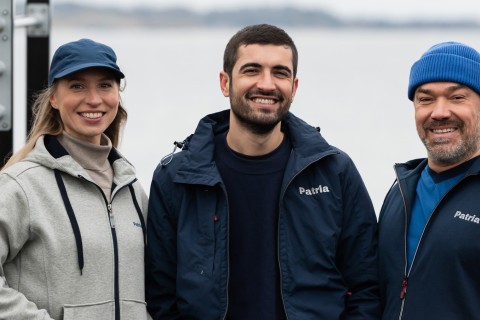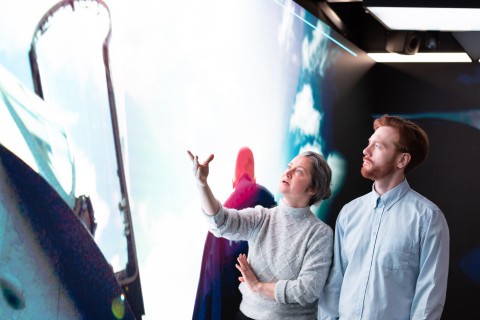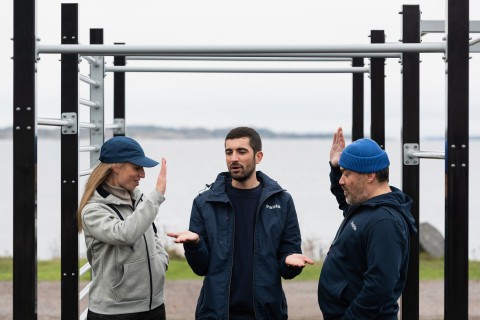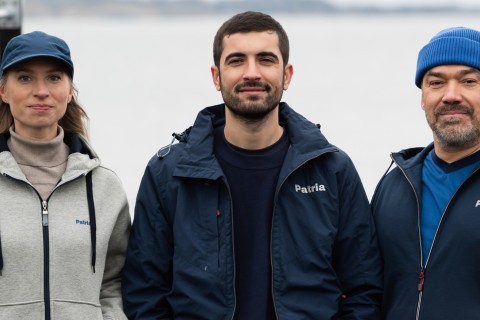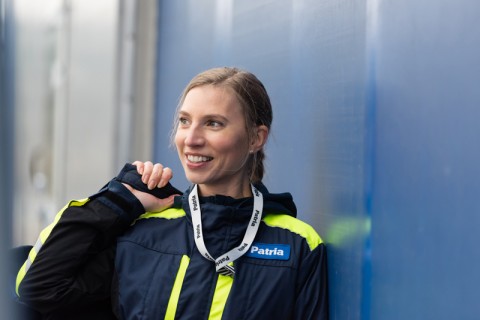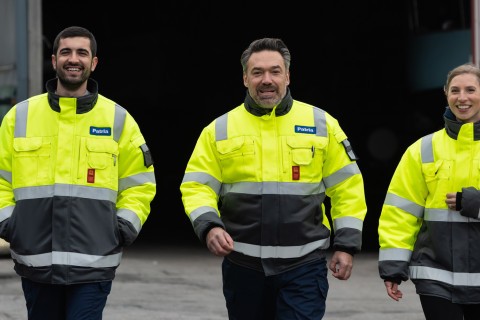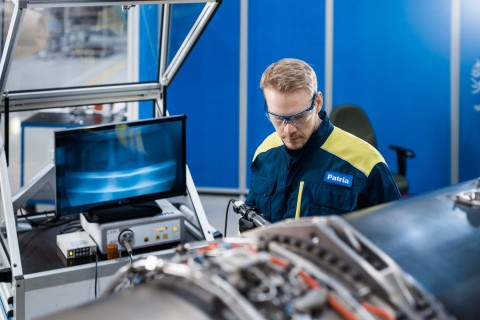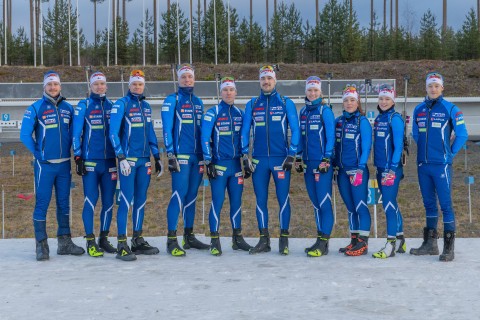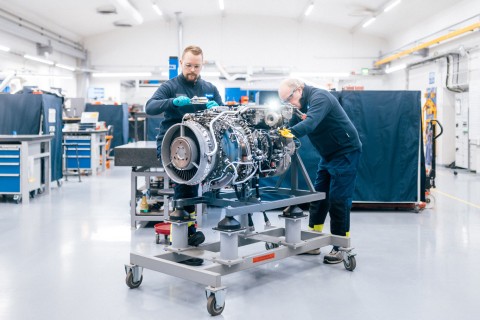
25.4.2019
Anu Heikkilä’s thesis led to a job in Patria’s ISP business unit. Diverse career opportunities were her goal from the outset.
Anu Heikkilä in Tampere, she gave me a satisfied smile – soon she will no longer need to keep travelling between Finland and Sweden. Heikkilä has been working in Patria’s helicopter maintenance unit at Arlanda in Stockholm, as part of both her thesis and local development efforts. But new challenges now await her. “I signed an employment contract in early 2019. From now on, I’ll be a specialist working on the development of Patria’s ISP business unit,” says Heikkilä. Heikkilä, who recently graduated with an MSc. (Tech), has plenty of praise for Patria. For example, she has been able to take part in Land’s testing week, and her employer has been very understanding with regard to this young woman’s beloved national defence hobby. “My image of Patria is extremely positive. I feel that when I give a lot to my employer, my employer will also provide me with flexibility.”
Military career an alternative
Heikkilä lived in Rovaniemi until she was nineteen. She is now a reserve lieutenant, and has both completed her voluntary national service and attended the Reserve Officer School. Although Heikkilä says she was in high school before she decided to get involved in national defence, there was some earlier evidence of her interest. “There’s a photo of me when I was three, playing with my sister on top of an anti-tank gun. Some family members have chosen careers in the military, and my father has been actively involved in voluntary national defence,” she says. During her national service, Heikkilä considered applying to the Finnish National Defence University, but instead decided to study industrial engineering and management at the University of Oulu. Her goal was to apply for work in the defence industry. During her first year of study, Heikkilä googled companies in the industry and found Patria. Her interest was awaked, and it seemed she had found a match for her expertise. “Industrial engineering and management students study things such as technology, leadership and economics. You get enough information in all these areas to understand what is required to, for example, build or programme a particular piece of machinery. This makes it easier to work with a broad range of specialists,” says Heikkilä.
Thesis gets a foot in the door
It all started with Heikkilä’s bachelor's thesis, which she offered to Patria. The subject was project management methods in development projects. While working on her bachelor’s thesis, Heikkilä laid down the groundwork for her master’s thesis, which was based on the teamwork on product portfolio management she had done during her studies. It was then agreed that Heikkilä could continue her independent thesis work on the topic of maintenance in the aviation sector – and she had been offered a permanent job at Patria before this project was complete. “It’s worth applying to interesting companies for internships and thesis work. It allows you to introduce yourself and demonstrate your expertise, and sniff out future job opportunities. It’s also a good idea to apply for a summer job,” says Heikkilä.
Utilising scientific research
Internships and thesis work are particularly important when you have a current, mutually interesting topic that will appeal to all of the parties involved: student, supervisor, company and educational establishment. By cooperating with universities and research institutions, a company can gain access to the latest scientific research and test it out in practice. When an organisation is open to new discoveries and a thesis topic has been well chosen, it is quicker to apply the results on a broader scope. For example, the results of Heikkilä’s thesis have already been applied at Patria ISP in areas such as production system development. “Young people revolutionise traditional approaches and operating methods in a fresh and positive way. I’ve seen how young people’s enthusiasm, sincerity and open-minded approach has made even management teams see things in a new light,” says Annamaija Mäki-Ventelä, ISP’s Vice President, Business Development.
What did you like about the article?
Thank you for your opinion! You can share the article on social media using the buttons below:



